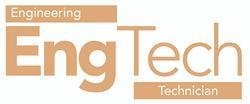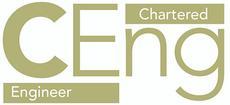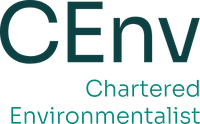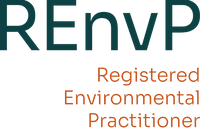Benchmarked engineering qualifications
Key to the safe, sustainable engineering, which SOE is committed to helping our members achieve, is professional registration and Continuing Professional Development (CPD). As a PEI, SOE is licensed by Engineering Council to register suitably qualified members for Engineering Technician, Incorporated Engineer and Chartered Engineer, and by Society for the Environment to award Chartered Environmentalist, and have around 6000 members with one or more of these qualifications.
Register and enjoy the benefits:
- Improved career status and a boost to your employability
- Demonstration of a professional attitude, valued by customers
- An internationally recognised qualification - whichever level you choose
Skilled professionals with a high level of technical knowledge

The Engineering Technician (EngTech) qualification proves your skills in development, production and maintenance of all kinds of equipment, vehicles, product, plant and process machinery.
EngTechs also take on supervisory and management roles, and contribute to design improvement.
How do I get EngTech?
SOE is committed to ensuring all members gain access to the qualification that is right for them. You will need to demonstrate, through application, that you meet the standard required. There are two ways to do this:
-
Qualification based - if you have a Level 3 and above or equivalent (either college based or apprenticeship), you can apply directly for Engineering Technician.
-
Workplace assessment - for those without formal qualifications but who are qualified by experience, we can arrange for an assessor to evaluate you.
Next step
We recommend that you read the UK Standard for Professional Engineering Competence (UK-SPEC). This document set outs the competence and commitment required for registration.
Key members of the engineering world, working to maintain performance and efficiency

Incorporated Engineers (IEng) manage and maintain applications of current and developing technology, and are involved with design, development, manufacture, construction and inspection. Those with IEng perform vital roles, and have influence within industry.
How do I get IEng?
IEng is generally assessed through qualifications which demonstrate your underpinning knowledge and understanding of the Engineering Council requirements for the qualification, but there are also alternative routes.
-
Qualification route: An accredited degree in engineering or technology, alternatively HNC/D plus appropriate further learning (or equivalent)
-
Technical report route: Gain IEng by producing an in-depth technical report of a project or theory, which demonstrates your ability to work at IEng level
Regardless of route, all IEng candidates must undertake a Professional Review Interview (PRI). It is conducted with two SOE approved IEng qualified assessors, who will talk to you about your skills, experience and assess you against the competencies for the qualifications.
Next step
We recommend that you read the UK Standard for Professional Engineering Competence (UK-SPEC). This document set outs the competence and commitment required for registration.
Senior leaders in engineering and business

Chartered Engineer (CEng) marks you as an individual who works to develop solutions to complex engineering problems using new or existing technologies, through innovation, creativity and embracing new ideas.
How do I get CEng?
CEng is the highest level of Engineering Council qualification. SOE helps all members who qualify to attain it, through one of two routes:
- Qualification route: an appropriate Bachelors degree, plus Masters with appropriate accreditation, or a CEng accredited degree with appropriate further learning
- Technical report route: you will need to identify and write an in-depth report which proves you are working at CEng level. You wil also need to be assigned to a mentor who wil review and report on your progress
Regardless of route, all CEng candidates must undertake a Professional Review Interview (PRI); this will be with two SOE approved CEng qualified assessors, who will talk to you about your skills, experience and assess you against the competencies for the qualifications.
Next step
We recommend that you read the UK Standard for Professional Engineering Competence (UK-SPEC). This document set outs the competence and commitment required for registration.
Experts working to the highest standards in the environmental profession

Chartered Environmentalist (CEnv), is a global mark of quality, awarded by Society for the Environment, and is the highest qualification available to SOE members working to safeguard and improve environmental engineering practice. Those with CEnv are seen as engendering trust with the public in the areas they work, and certifies them to make environmental related decisions.
How do I get CEnv?
You can apply for CEnv through demonstration of the appropriate qualifications and experience against the competencies required. The general requirement is to have a degree in a related or underpinning subject, plus significant experience of the environmental field you work in. Qualifications less than a degree may also be accepted, if your demonstrable experience shows that you are equipped to degree level.
You will also be required to attend an Professional Review Interview (PRI), where SOE qualified CEnv assessors will talk to you about your experience and grade you against the competencies.
Next step
We recommend that you read the CEnv Competencies. These set out the competence and commitment required for registration.
Experts working to the highest standards in the environmental profession

Being a Registered Environmental Practitioner (REnvP) demonstrates that you can apply environmental knowledge with the understanding and skills to protect and enhance the environment in a sustainable way. It recognises the standard of professional practice operating within different environmental disciplines and knowledge, aligned with the range of professional sectors within the SOE.
How do I get REnvP?
You must demonstrate that you meet the Society for the Environment requirements for Registered Environmental Practitioner and uphold SOE’s CPD policy. You need to be a corporate member (Member Class or higher) of the SOE.
Next step
We recommend that you read the REnvP practice direction which offers further guidance. Then complete and submit the online application form and upload your CV, CPD Log and copies of your academic qualifications by clicking the link below.

